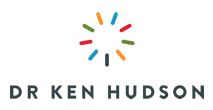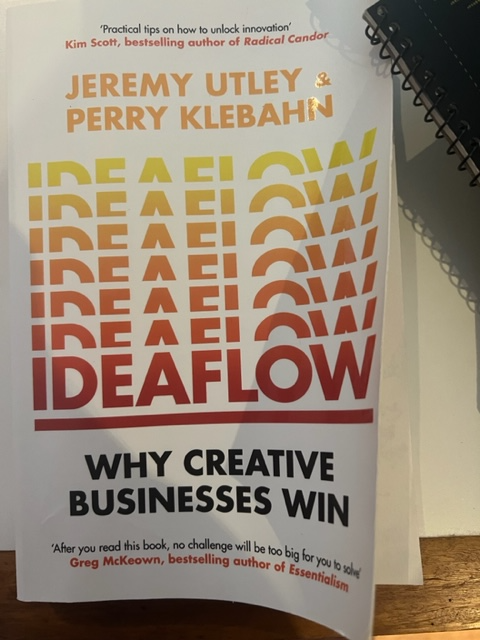I just finished reading Idea Flow – Why Creative Businesses Win by Jeremy Utley and Perry Klebahn (2022).
Both of these practitioners are associated with the Stanford d.schooland have worked with numerous companies over the past 20 years.
There is much to like about this book – it’s written a light breezy style with lots of examples and practical tips.
It also happens to be about one of my favourite topics – creativity and ideas.
Some of the insights of Idea Flow include:
– the quantity of ideas creates quality
– I love their definition of creativity – ‘creativity is doing more than the first thing that comes to your mind.’
– They make a great distinction between a task (i.e. something you know how to solve) and a problem (i.e. something that requires new thinking).
– Using this perspective means that all problems are idea problems.
– They use an interesting definition of an idea – ‘simply a new connection between two things that were already floating around in your head.’
– One of the strongest concepts in the book is when they use a metric for creativity. Long considered a subjective, fuzzy ‘thing’ they define Idea Flow as the number of novel ideas a person or group can generate around a given problem in a given amount of time.’
– I like this metric. It’s simple, practical and can proactive.
– It’s also forward looking rather say patents for example which is more of a lag indicator. As the authors suggest ‘ideas are future profits.’
– Another lovely insight is when they talk about not trying so hard to be creative – be obvious instead (i.e. what feels obvious to one person may not be to another).
– It sounds obvious but the need for groups and teams with a diverse range of perspectives is the pathway to creating new ideas. This also helps individuals to overcome their blind spots.
– They have a lovely, simple explanation of why we have individual and collective blindspots. It’s because our brain is designed for efficiency. Over time we form thinking patterns which are fast and efficient. But they can limit us to new ideas and insights.
– It’s because of this very reason that i developed a tool kit called Switch Thinking to help people switch the way they see problems – on demand.
– As a last point the authors suggest that being problem rather than idea centric is a valuable innovative skill. Find better problems they argue (e.g. It sucks that…).
In Summary:
Idea Flow is an easy, practical read for leaders, it provides a tangible road map to develop more creative and innovative teams and organisations.

